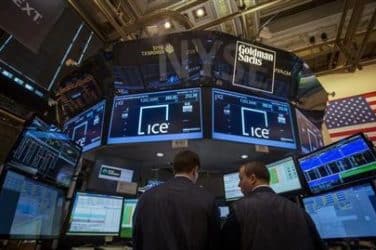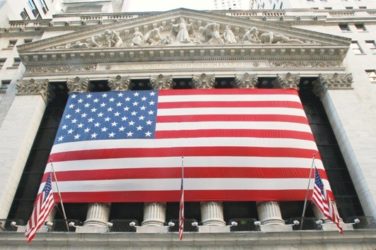

Doug Cifu, chief executive of Virtu Financial, the market maker, broker and technology provider, defended payment for order flow as retail investors receive price improvement and the business model has allowed markets to become more democratized.
Cifu was interviewed in a webinar today by Larry Tabb, head of market structure research at Bloomberg Intelligence as part of the Equity Trading Research Series.
Looking to talking with @ltabb about how retail market making really works…and maybe some hockey and @FeltmansConey too? @VirtuFinancial https://t.co/PuBgLBzNQ0
— Doug Cifu (@Dougielarge) February 22, 2021
They were responding to Congressional hearings last week into the volatility of shares in GameStop rising 1,600% last month. Retail investors drove up the price after users of online forum Reddit had posted that hedge funds had taken a large short position in the US video game retailer. Trading app Robinhood was forced to temporarily suspend trading in GameStop and other “hot” stocks in order to cover its clearing margins which led to allegations of market manipulation and unfair treatment of retail investors.
Cifu said: “Data on routing, best execution and payment for order flow is all publicly available. The retail customer has benefited from easy access to the equity market on their phone for no fees, and they receive a price which is at- or better-than on an exchange.”
Tabb presented a slide showing that $3.7bn (€3bn) in price improvement was returned to retail investors last year as a result of payment for order flow.
“We have spent billions of dollars building infrastructure to connect to 250 markets across asset classes which allows us to guarantee execution with price improvement, “ added Cifu. “The rebate is a small price to pay.”
Some interesting slides from the call adding context to a market maker's core business & the current equity trading landscape: pic.twitter.com/4JndTwUZCW
— Hide Not Slide (@HideNotSlide) February 23, 2021
Cifu continued that each retail broker decides how to allocate flow to market makers based on price improvement in a very competitive business.
The chief executive compared the PFOF process to him driving out on a Saturday morning to fill his car with gas. There are a number of gas stations competing on price but he prefers the one where he knows the owner and that has a fridge full of snacks, even though it may not be the cheapest.
“Every broker receives at- or better-than exchange pricing and is making a choice from competing market makers based on service,” he added.
Cifu added that retail brokers that have decided to make payment for order flow part of their business model have attracted many new people into the market and democratized access.
“They have reduced friction and costs to enter the market,” said Cifu. “This is a positive and the market is much better than it was five to 10 years ago.”
Tyler Gellasch, executive director of The Healthy Markets Association, an investor-focused non-profit buy-side coalition, said in a letter to Congress last week that payment for order flow exploits investors and provide incentives that exacerbate risks for the markets.
Gellasch wrote: “We encourage this Committee and regulators to seek copies of all order routing arrangements between Robinhood and its market makers, and would similarly encourage the Committee to explore whether and how Robinhood factors receipt of payment for order flow into its order routing decisions for different types of orders and asset classes.”
If you are interested in the policy implications of recent events around GameStop and Robinhood, you won't find a better source than this letter from Healthy Markets @TylerGellasch https://t.co/qUf42Lkudn
— Barbara Roper (@BarbaraRoper1) February 17, 2021
Vlad Tenev, co-founder and CEO of Robinhood Markets, said in his written testimony that payment for order flow benefits customers. He said market-makers provide Robinhood with a rebate for executed orders, and in return, they provide reliable, quick, and competitive trade executions which are typically at better prices than on public exchanges.
Tevev continued that Robinhood customers received more than $1bn in price improvement in the first half of last year.
Kenneth Griffin, founder and chief executive of Citadel and founder and principal shareholder of Citadel Securities, said in his written testimony that retail brokers have used payment for order flow to reduce the costs of trading and that faster execution, better pricing and reduced fees have made the cost to invest in America lower than ever.
Off-exchange trading
As increased numbers of retail investors have entered the market, the volume of off-exchange trading has been rising and Tabb said TRF volume was 47.2% last month. Trade Reporting Facilities (TRFs) run by Nasdaq and NYSE capture trading off-exchange such as in alternative trading systems, internalizers, internal matching by central risk books and single-dealer platforms.
Tabb highlighted that TRF volume has increased by one third in stocks that are priced between $1 and $5.
Cifu said: “There has not been a huge TRF surge in stocks above $5 so it is not a hindrance to price discovery. Exchanges have a real purpose in price discovery but regulators should not limit investor choice.”






